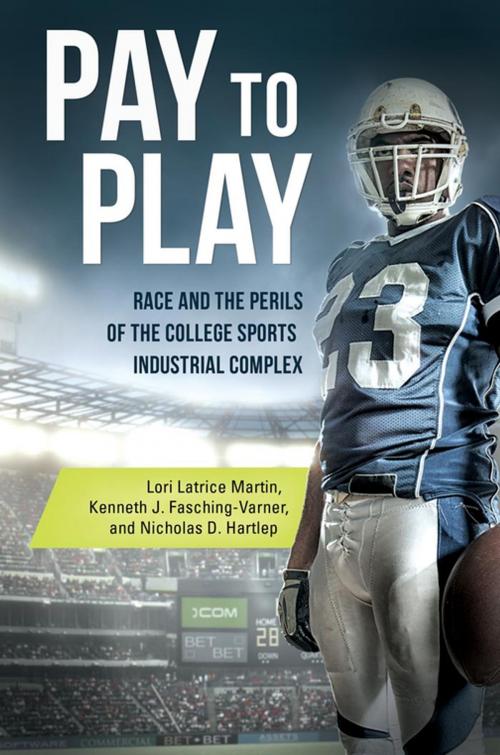Pay to Play: Race and the Perils of the College Sports Industrial Complex
Nonfiction, Social & Cultural Studies, Social Science, Cultural Studies, Ethnic Studies, Sports| Author: | Kenneth J. Fasching-Varner Ph.D., Nicholas D. Hartlep Ph.D., Lori Latrice Martin | ISBN: | 9781440843167 |
| Publisher: | ABC-CLIO | Publication: | March 20, 2017 |
| Imprint: | Praeger | Language: | English |
| Author: | Kenneth J. Fasching-Varner Ph.D., Nicholas D. Hartlep Ph.D., Lori Latrice Martin |
| ISBN: | 9781440843167 |
| Publisher: | ABC-CLIO |
| Publication: | March 20, 2017 |
| Imprint: | Praeger |
| Language: | English |
Top-tier college sports are extremely profitable. Despite the billions of dollars involved in the amateur sports industrial complex, none winds up in the hands of the athletes. The controversies surrounding whether colleges and universities should pay athletes to compete on these educational institutions' behalf is longstanding and coincides with the rise of the black athlete at predominately white colleges and universities. Pay to Play: Race and the Perils of the College Sports Industrial Complex takes a hard look at historical and contemporary efforts to control sports participation and compensation for black athletes in amateur sports in general, and in big-time college sports programs, in particular.
The book begins with background on the history of amateur athletics in America, including the forced separation of black and white athletes. Subsequent sections examine subjects such as the integration of college sports and the use of black athletes to sell everything from fast food to shoes, and argue that college athletes must receive adequate compensation for their labor. The book concludes by discussing recent efforts by college athletes to unionize and control their likenesses, presenting a provocative remedy for transforming big-time college sport as we know it.
Top-tier college sports are extremely profitable. Despite the billions of dollars involved in the amateur sports industrial complex, none winds up in the hands of the athletes. The controversies surrounding whether colleges and universities should pay athletes to compete on these educational institutions' behalf is longstanding and coincides with the rise of the black athlete at predominately white colleges and universities. Pay to Play: Race and the Perils of the College Sports Industrial Complex takes a hard look at historical and contemporary efforts to control sports participation and compensation for black athletes in amateur sports in general, and in big-time college sports programs, in particular.
The book begins with background on the history of amateur athletics in America, including the forced separation of black and white athletes. Subsequent sections examine subjects such as the integration of college sports and the use of black athletes to sell everything from fast food to shoes, and argue that college athletes must receive adequate compensation for their labor. The book concludes by discussing recent efforts by college athletes to unionize and control their likenesses, presenting a provocative remedy for transforming big-time college sport as we know it.





![Cover of the book Native America: A State-by-State Historical Encyclopedia [3 volumes] by Kenneth J. Fasching-Varner Ph.D., Nicholas D. Hartlep Ph.D., Lori Latrice Martin](https://www.kuoky.com/images/2012/march/300x300/9780313381270-Xot9_300x.jpg)



![Cover of the book Ecopsychology: Advances from the Intersection of Psychology and Environmental Protection [2 volumes] by Kenneth J. Fasching-Varner Ph.D., Nicholas D. Hartlep Ph.D., Lori Latrice Martin](https://www.kuoky.com/images/2015/september/300x300/9781440831737-MgQx_300x.jpg)



![Cover of the book Prison Privatization: The Many Facets of a Controversial Industry [3 volumes] by Kenneth J. Fasching-Varner Ph.D., Nicholas D. Hartlep Ph.D., Lori Latrice Martin](https://www.kuoky.com/images/2012/september/300x300/9780313395727-MzdT_300x.jpg)
![Cover of the book The Sea in World History: Exploration, Travel, and Trade [2 volumes] by Kenneth J. Fasching-Varner Ph.D., Nicholas D. Hartlep Ph.D., Lori Latrice Martin](https://www.kuoky.com/images/2017/april/300x300/9781440835513-3FbY_300x.jpg)
